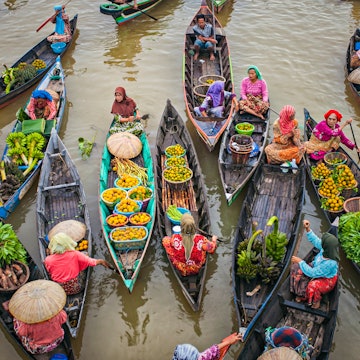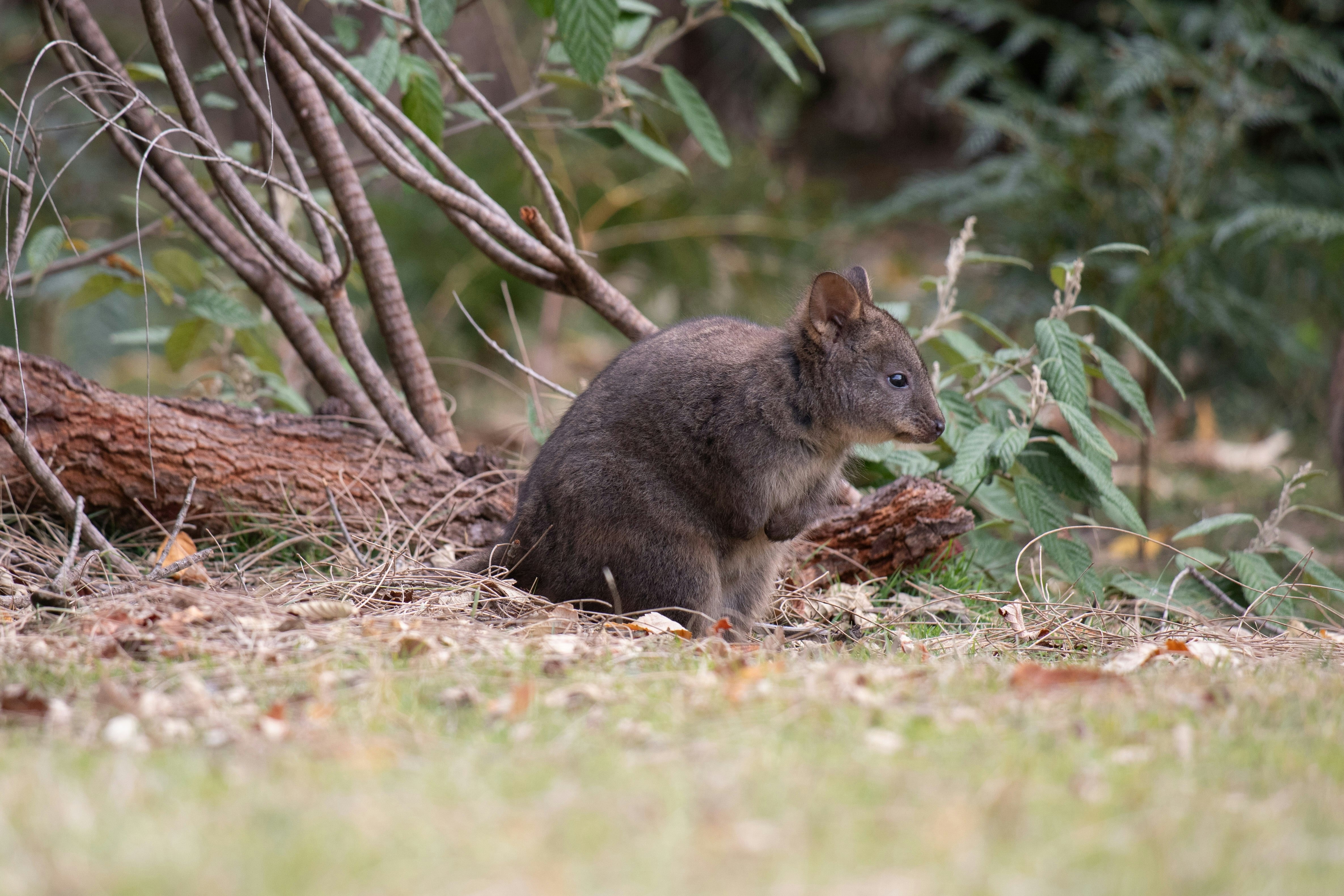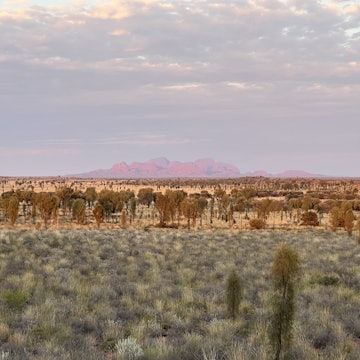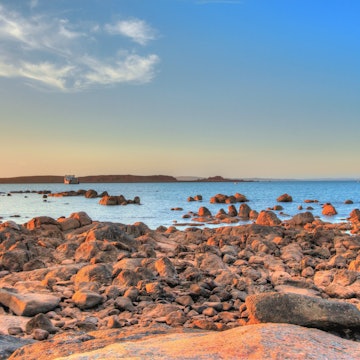

From hiking to rafting, kayaking and mountain bike riding, Tasmania is perfect for outdoors activities. Getty Images
Blanketed in mountains and rainforest and lashed by the Roaring 40s winds, Tasmania is a wild place with wild ways. Australia’s island state could not have been better designed for lovers of adventure. The country’s most famous hiking trails are here, along with its most dramatic peaks. Rivers pour through forests thick with moss and some of the planet’s tallest trees. It’s an environment that’s created one of the world’s greatest rafting trips and a similarly world-class collection of mountain bike trail networks has also emerged in the last decade. It’s brought this island in the Southern Ocean to the attention of many who crave a shot of adrenalin – be it a week in the wilds or a half-day adventure, with plentiful activities accessible to families and those with limited mobility.
Here’s our pick of Tasmania’s top outdoor adventures.
1. Rafting the Franklin River
Best for an epic journey
Declared the world’s greatest rafting trip by Outside magazine, the Franklin River is a fast and furious waterway, crashing for 125km through steep gorges, with turbulent stories to match. The fight to save this wilderness river from dams in the early 1980s was the most famous environmental story (and a rare conservation success) in Australia’s history, while the discovery of Aboriginal cultural remains in a cave on the river’s banks helped sealed the deal on Tasmania’s vast Wilderness World Heritage listing.
Guided rafting trips, such as those with outfitters Water by Nature Tasmania and Tasmanian Expeditions, put in at Collingwood River and quickly meet the Franklin, which stutters between flat floats and unruly rapids. The deep and mystical Great Ravine, in particular, is a day-long epic of rapids. Expect to be on the river for at least seven days.

2. Wildlife on Maria Island
Best for wildlife, families and wheelchair accessibility
Tasmania’s largest island national park is dotted with the relics of its convict past, but the wildest things here are its critters. In the 1960s, a number of threatened species were introduced to the mountainous island, just a 30-minute ferry ride from the east coast town of Triabunna, where they thrived. Step off the ferry today and you’re quickly in the company of wombats – dozens of them – nibbling the lawns around the old penitentiary. Forester kangaroos, wallabies and colorful Cape Barren geese graze beside them. If your luck is in, this is also the surest place in the world to spot a beloved Tasmanian devil in the wild. Devils were introduced to the island in 2012 as an insurance population against the cancer that is threatening the species’ survival.
The Maria Island ferry is wheelchair accessible, with the area around Darlington (the convict penitentiary that operated in the 1840s) also manageable for most.
3. Kayaking for fish and chips
Best for families
Paddle up an appetite on a half-day kayaking tour on Hobart’s River Derwent estuary. Rounding the shores of the historic inner-city suburb of Battery Point, this tour with Roaring 40s Kayaking paddles into Hobart’s central docks, enjoying one of the capital’s best views, with 1271m kunanyi/Mt Wellington towering over Hobart’s city-center buildings. In Constitution Dock – home base to finishers in the famous Sydney to Hobart Yacht Race in the days after Christmas – kayakers raft up, collecting a feed of fish and chips from a dockside fish punt, which is eaten afloat before exiting the docks and returning around Battery Point.

4. Mountain biking in Derby
Best for adrenalin
With more than 125km of flowing trails etched through the bush and across the surrounding mountains, the northeast town of Derby is the poster child of Australian mountain biking. Trails in the Blue Derby network dip through rainforest, squeeze into an old mining tunnel and lap a lake at the town’s edge, with plenty to please all levels of mountain biking abilities. There are rentals and trail shuttles aplenty from the likes of Vertigo MTB and Evolution Biking in the mountain-bike-mad town, and you can even grab a restorative sauna on a pontoon atop the town lake at the riding day’s end.
5. Boating around Tasman Peninsula
Best for coastal scenery
Spot wildlife large and small as you skim beneath Australia’s tallest sea cliffs on a Pennicott Wilderness Journeys boat cruise along the edge of the Tasman Peninsula in the state’s southeast. There are marine animals aplenty – dolphins riding the bow wave, a colony of seals, fin-slapping humpback whales – along with coastal caves, 300m high cliffs and legendary sea stacks such as the Totem Pole, which is famed among rock climbers across the world. The three-hour cruises set out from the former convict penitentiary at Port Arthur. Waterproof clothing is provided, but bring something warm.
Due to their size, the boats aren’t wheelchair accessible, but are accessible for people with mobility restrictions.
6. Caving at Mole Creek
Best for a half-day adventure
The northwest town of Mole Creek seems well named, with the surrounding Mole Creek Karst National Park punctured by more than 3000 caves. Park rangers run leisurely guided tours of two of these caves – Marakoopa and King Solomons – but things get more untamed on spelunking tours with Wild Cave Tours. Among the many possibilities are the waterfall-filled chambers of the labyrinthine Honeycomb Cave and the elegant Sassafras Cave where still pools reflect a glow-worm-covered ceiling. Book a half-day tour to explore one cave, or a full day underground for a pair.

7. Hiking the Overland Track
Best for a multi-day hike
Weaving between some of Tasmania’s highest and most dramatic mountains, the 65km Overland Track is arguably Australia’s most famous hike. Setting out in sight of craggy Cradle Mountain – one of Tasmania’s emblematic natural scenes – the hike threads through valleys below Mt Ossa (Tasmania’s tallest peak at 1617m), passing a string of alpine lakes and waterfalls to Lake St Clair, Australia’s deepest lake. Public hiker huts (with campsites) neatly divide the track into six sections. In the hiking season (October through May), the track can only be walked north to south and advance bookings are required, with numbers limited to 34 hikers setting out each day. Bookings for the season open on 1 July.
8. Sledding the Mersey River
Best for families
Think of it as white-water rafting for one – piloting an air-mattress-like “sled” down the rapids of northern Tasmania’s Mersey River. Running close to the edge of the Tasmanian Wilderness World Heritage Area, near the dairy-farming town of Meander, the river flows in a series of grade I and II rapids, providing a fun but not frightening float on trips operated by Meander Wilderness Experiences. On these sleds you are your own master, steering and paddling them into rapids and then holding on for the bumpy ride. Flat stretches of river between rapids provide plenty of chance to roll over, lie back and let the sled glide gently on.

9. Hiking the wukalina Walk
Best for cultural immersion
With its blue seas, white sands and granite boulders smothered in orange lichen, the Bay of Fires is arguably the most beautiful and colorful section of coastline in Tasmania. Hiking its shores on the guided four-day wukalina Walk is a step into this beauty, overlaid with the living culture of the palawa (Tasmanian Aboriginal) people. Owned and guided by the Tasmanian Aboriginal community, the walk is a glimpse into bush tucker, middens (accumulations of shells from many generations of Aboriginal meals) and ancient stories as guests hike south along the dazzling beaches of Mt William National Park. The first two nights are spent in a purpose-built camp, where the design of the sleeping pods is inspired by traditional palawa shelters, with the final night in lighthouse keeper cottages at larapuna/Eddystone Point.
10. Canyoning at Cradle Mountain
Best for adrenalin
Look down instead of up at Cradle Mountain and you might notice Dove Canyon, a geological paper cut in the alpine landscape. From November to April, Cradle Mountain Canyons runs canyoning trips that squeeze through the narrow fissure – abseiling, wading, swimming and scrambling to traverse its complicated course. Family-friendly trips run through the Lost World upstream, while the Dove Canyon trip will have you leaping off 6m-high ledges into deep pools, and gulping down breaths before you funnel into the turbulent Laundry Chute rock slide.













